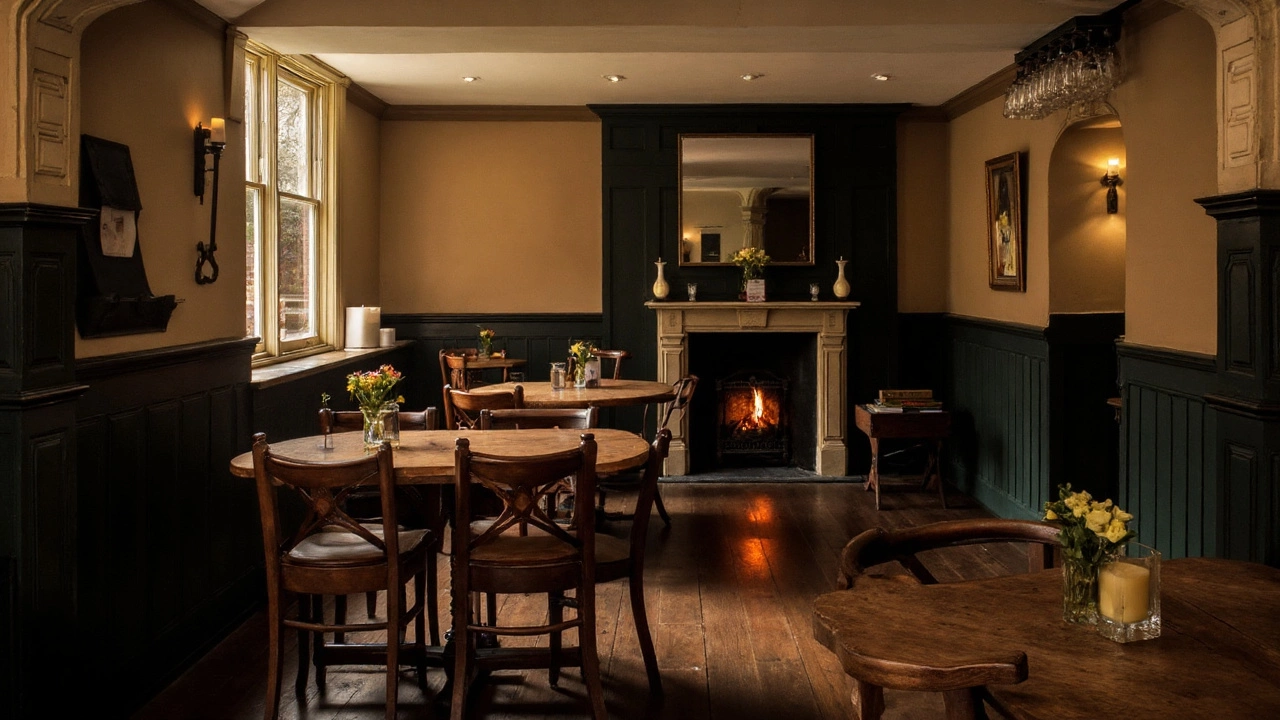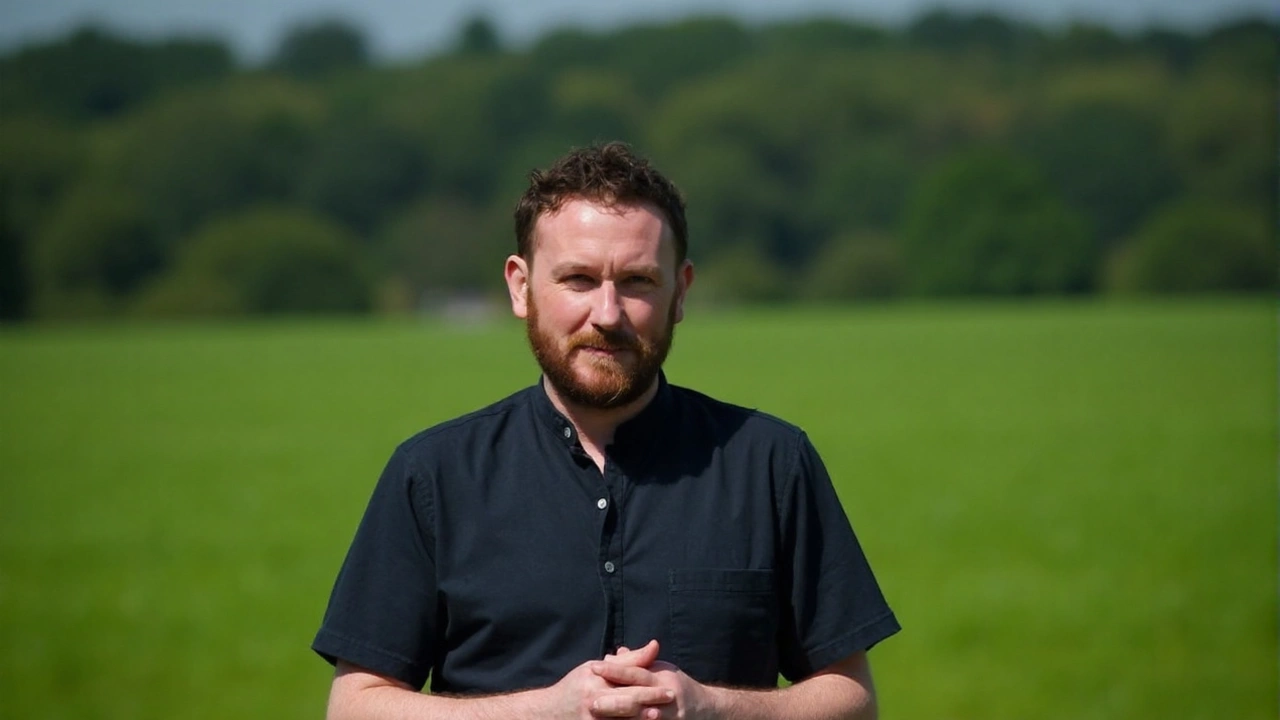A 1782 pub, a 2011 closure, and a last-ditch rescue
A village pub that first poured pints in 1782 is getting a second life — and a TV series to prove it. In A Yorkshire Pub with Jon Richardson, the comedian swaps the comedy circuit for crowbars and committee meetings as he helps bring The Plough in Fadmoor, North Yorkshire, back from a 14-year limbo.
The pub sits on the edge of the North York Moors, the kind of place walkers and locals used to treat as a living room with a bar. It shut without warning in 2011. Plans later surfaced to split the building into two homes and four holiday lets, a move that sparked a backlash in the village. Rather than watch their last gathering place vanish, residents set up a community company and started the long job of buying it back and fixing it up.
Richardson heard about the effort, went to see the site, and signed on as a shareholder. It tracks with his long-running bit about pubs — he famously built a mini boozer, The Dog and Bastard, in his garage in Hebden Bridge. But this is different. This isn’t a prop. It’s a draughty, historic building with real-world problems and dozens of locals counting on the outcome.
The new More4 series, produced by Birmingham-based Full Fat TV, follows that rescue from the inside. Cameras join Richardson as he gets to know Fadmoor’s farmers, retirees, builders, and brewers, then rolls up his sleeves for the unglamorous bits: stripping out damp, choosing materials that suit an 18th-century inn, figuring out a budget that doesn’t crumble every time timber prices spike.
He’s not pretending to be a master builder. The point is to show what it takes when a rural community tries to save its last shared space. Expect laughter, sure, but the show leans into the slog: planning wrangles, heritage sensitivities, volunteer fatigue, and those dreaded moments when a wall comes down and a bigger problem appears.
Richardson’s own words set the tone. He says he loves pubs so much he built one at home — and even that wasn’t enough. When he met the Fadmoor team, he was hooked. He calls them lively, cool, and the sort of people who make you feel better about the world. That spirit is the engine of the show.

Beyond TV: why the comeback matters to a village
Fadmoor is small. When a place like this loses its pub, it loses more than beer. It loses a noticeboard, a weekly quiz, a warm room on a cold night, a steady spot for farmers to talk shop, and a reason for hikers to push on one more mile. Once gone, that web of small interactions is hard to rebuild.
That’s why the rescue carries weight well beyond the Moors. Across the UK, community groups have been rallying to buy threatened pubs for over a decade, helped by the 2011 Localism Act and support networks like the Plunkett Foundation and CAMRA. The idea is simple: give locals a stake, protect the building’s future, and run it as a social asset first and a business second. The Plough fits that pattern — but with a twist. This time, a familiar face is investing money and sweat, and a national audience gets to see how complicated and rewarding the process can be.
The series looks at the nuts and bolts. There’s the building work: fixing roofs that sag, floors that slope, and plumbing that predates modern boilers. There’s design: keep the oak beams and stone floors, but make the place warm, accessible, and energy efficient. There’s the bar offer: a tight lineup of cask ales and lagers that nods to local breweries, a menu that works for muddy boots and Sunday families alike, and a price point villagers can live with.
Money is a constant subplot. Community projects often rely on a blend of shares, grants, and pure grit. Costs shift. Delivery dates slip. Volunteers burn out. The production follows those stresses without turning them into TV melodrama. It’s closer to a field guide: here’s what went wrong, here’s who stepped up, and here’s how the plan changed.
There’s also the question of identity. What does a historic pub owe its past, and what does it owe its future customers? The Plough closed in a different era. Today, a rural pub has to be many things to survive: a coffee stop at 10am, a hot lunch at 1pm, a darts night at 9pm, and a warm, well-lit room for everything from book clubs to parish meetings. The show leans into that evolution rather than treating it as a loss.
Fadmoor’s setting helps. The North York Moors draw steady footfall from walkers, cyclists, and holidaymakers. If The Plough gets the welcome right — a clean pint, a decent pie, a dog bowl by the fire — those visitors can keep money flowing through the till year-round. That income, in turn, supports jobs and buys time for the slow work of being a village hub.
Full Fat TV shoots it like a working diary. Expect a mix of site visits, chats around trestle tables, and the small wins that keep a project alive: the first time the electrics hold, the first crate of glasses arriving unbroken, the first pint poured with a creamy head. Richardson’s role shifts between comic relief and extra pair of hands. He asks questions non-builders will ask. He also takes the knocks when plans misfire.
The broadcaster is keeping scheduling details close for now, but the series is set for More4, Channel 4’s home for character-led factual shows with a slower, more thoughtful pace. It fits. This isn’t a makeover in a weekend. It’s a long, messy job with a whole village in frame.
What’s at stake? Quite a lot for a small signboard at the edge of the Moors.
- History: a pub that’s stood since the 18th century gets a future that respects its bones.
- Community: a room where people meet, talk, and look out for each other returns to daily life.
- Local economy: suppliers, trades, and nearby B&Bs see a lift from regular custom.
- Tourism: walkers and cyclists gain a reliable stop that anchors routes across the Moors.
Richardson may be the hook, but the heart of the story is collective effort. If The Plough swings its doors open again, it won’t be because a TV crew arrived. It’ll be because a village refused to let its last bit of shared ground disappear — and found a way to make the numbers, and the brickwork, add up.



